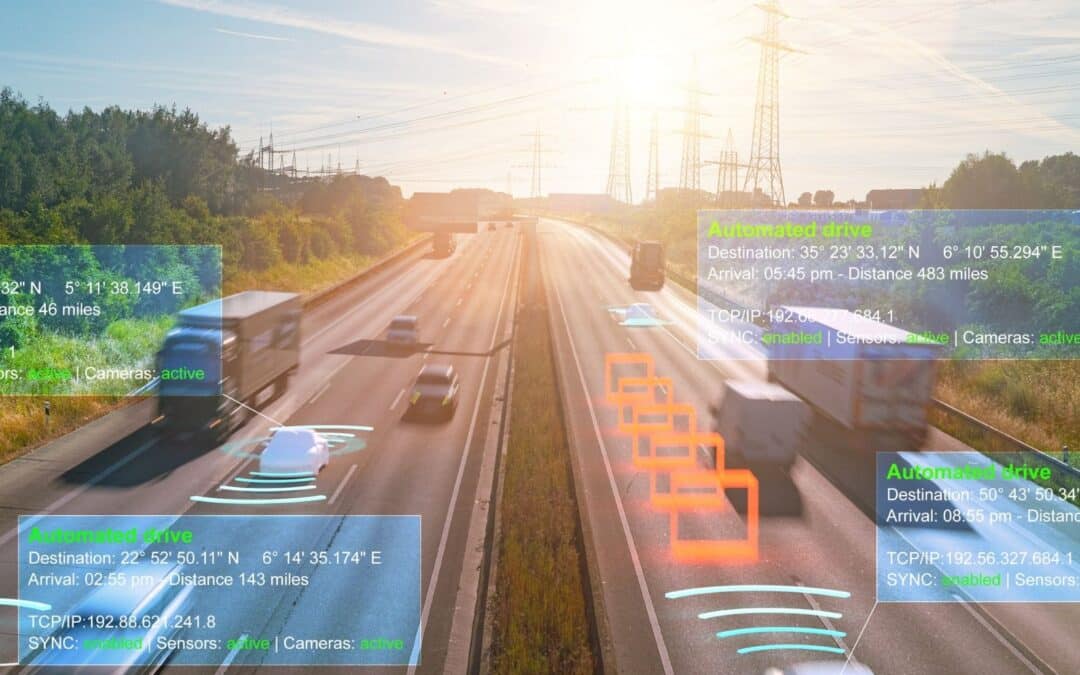As autonomous vehicles become increasingly prevalent on Chicago’s roads, concerns about their safety and reliability grow. One critical component of autonomous vehicles is sensors, which enable them to detect and respond to their surroundings. However, sensor failure can have catastrophic consequences.
(Driverless Dangers: Cybersecurity Risks in Autonomous Vehicles and Personal Injury Concerns)
The Role of Sensors in Autonomous Vehicles
Sensors are the “eyes” of autonomous vehicles, providing critical data to navigate roads safely. These sensors include:
- Camera Sensors: Capture visual data, detecting obstacles, pedestrians, and traffic signals. High-resolution cameras can detect pedestrians, cyclists, or animals even in low-light conditions.
- Radar Sensors: Use radio waves to detect speed and distance from surrounding objects. Radar sensors can track multiple targets simultaneously, enabling autonomous vehicles to anticipate potential hazards.
- Lidar Sensors: Employ laser light to create high-resolution 3D maps of the environment. Lidar sensors provide precise distance and spatial awareness, crucial for navigating complex intersections.
Dangers of Sensor Failure
Sensor failure can lead to motor vehicle accidents, injuries, and fatalities. When sensors malfunction, autonomous vehicles may struggle to detect and respond to their surroundings, increasing the risk of accidents.
For instance, a malfunctioning camera sensor may fail to detect a pedestrian stepping into the crosswalk. Similarly, faulty radar sensors can provide incorrect speed or distance data, leading to accidents or near-misses.
Causes of Sensor Failure
Sensor failure can result from various factors, including:
- Adverse Weather Conditions: Heavy rain, fog, or snow can impair sensor accuracy. Weather conditions can also cause sensors to malfunction or provide incorrect data.
- Software Glitches: Errors in sensor software can cause malfunctions or incorrect data interpretation. Software glitches can also compromise sensor calibration and performance.
- Physical Damage: Sensor damage from accidents or road debris can compromise autonomous vehicle safety. Physical damage can also affect sensor accuracy and reliability.
Regulatory Framework and Liability
The regulatory framework surrounding autonomous vehicles is evolving. Chicago and Illinois have implemented regulations governing autonomous vehicle testing and deployment.
Determining liability in accidents involving autonomous vehicles can be complex. Manufacturers, operators, and software developers may be held liable for accidents or injuries.
Understanding Autonomous Vehicle Safety Standards
To ensure public safety, autonomous vehicles must meet rigorous safety standards. These standards include:
- Functional Safety Standards: Ensuring sensors and software operate correctly and reliably. Functional safety standards also require regular software updates and maintenance.
- Cybersecurity Standards: Protecting autonomous vehicles from cyber threats and data breaches. Cybersecurity standards require robust encryption and secure communication protocols.
- Crashworthiness Standards: Ensuring autonomous vehicles can withstand accidents and protect occupants. Crashworthiness standards also require autonomous vehicles to meet strict safety criteria.
The Future of Autonomous Vehicle Safety
As autonomous vehicle technology advances, safety will remain a top priority. Future developments will focus on:
- Improved Sensor Reliability: Enhancing sensor accuracy and durability. Improved sensor reliability will also enable autonomous vehicles to operate in diverse weather conditions.
- Advanced Software Testing: Implementing robust testing protocols to ensure software reliability. Advanced software testing will also simulate real-world scenarios to identify potential vulnerabilities.
- Human-Machine Interface: Developing intuitive interfaces to facilitate safe human-vehicle interaction. Human-machine interface design will prioritize clear communication and minimal distraction.
Conclusion
Sensor failure in autonomous vehicles poses significant risks to Chicago motorists. Understanding these risks and addressing regulatory and liability concerns is crucial for ensuring public safety.
By prioritizing sensor reliability and implementing safety measures, we can reduce the risk of accidents and injuries. If you’re looking for an experienced Chicago personal injury lawyer to help navigate your personal injury claim, we will fight assiduously for your right to the compensation you deserve. Call Bizzieri Law Offices at 773.881.9000. The case evaluation is free, and we never charge a fee unless we recover damages for you.

